SISTERS IN THE WILD
Making bikepacking and gravel more inclusive.
As part of our continued support of International Women's Day, our ambassador Rachael Walker teamed up with an organisation close to her heart to host an intro to mountain bike weekend for Muslim women and an intro to bikepacking trip for people of colour. We asked Rachael and her friends to share about their efforts to increase inclusivity and accessibility in gravel, MTB, and bikepacking.
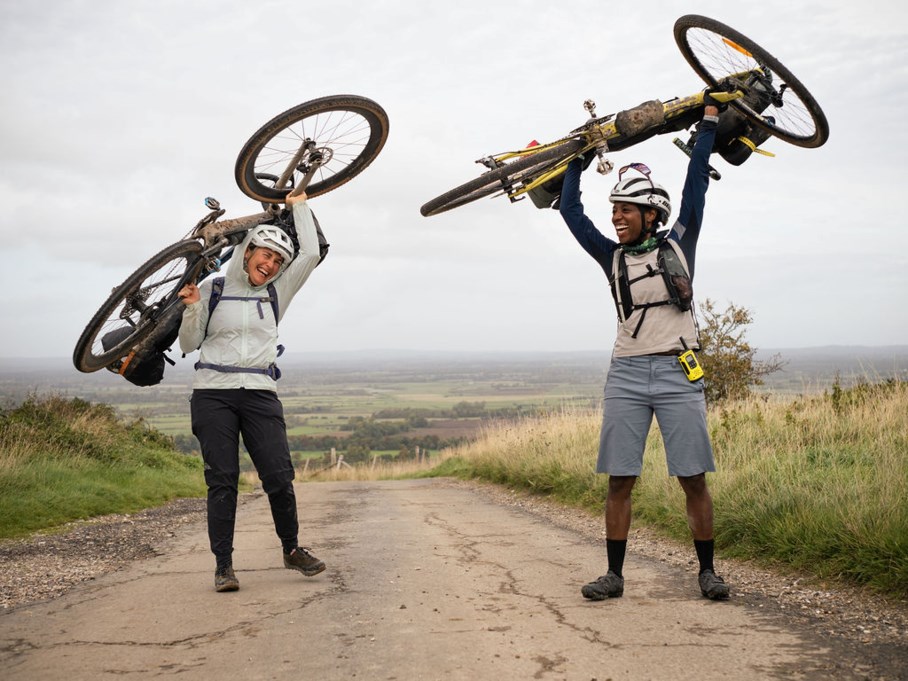
Rachael Walker
Earlier this year, I had the pleasure of contributing to SRAM’s focus on International Women’s Day. In my essay, I wrote about some amazing movements, communities, and events that are shaping the future of what cycling can mean to so many women, non-binary, and trans folks. Cycling no longer fits into neat boxes or categories. There are now more opportunities than ever to get involved in a version of cycling that suits you. But barriers still exist for some communities, whether physical or intangible, which prevent some from even contemplating the possibility of riding.
I’ve been privileged to support Sisters In The Wild over the last 18 months, as they’ve welcomed more than 350 riders through their community-focused events. From all-ability gatherings and beginner bikepacking weekends, to gravel camps and multi-day rallies, their events are always a joy to be part of and the riding is stunning. But it’s their approach to accessibility and inclusivity that keeps me inspired to come back.
The vision of Sisters In The Wild is to break down barriers. I believe in this vision and knew SRAM's International Women's Day donation would give vital support, allowing these projects to flourish.
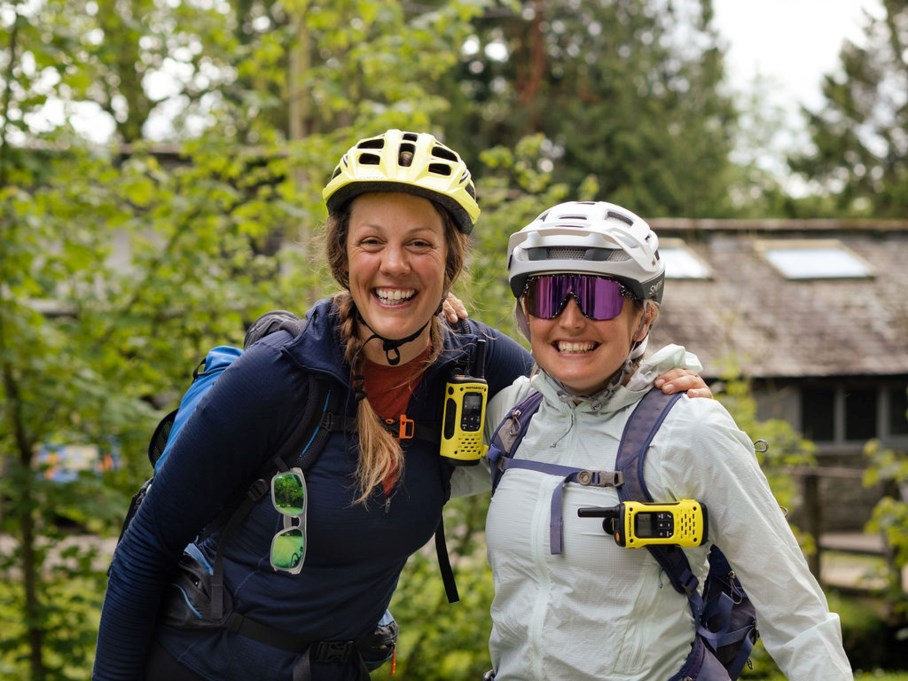
Charlotte Inman, Director of Sisters In The Wild UK
Away from the noise of the everyday, while carrying everything on your bike, bikepacking offers a unique opportunity to connect...Connect with others, with the world around us, and to reconnect with ourselves.
This focus on connection runs through all of our events, and the things that happen off the bike are as important as what happens on it. Learning how to fix your tubeless tyres in a pre-ride mechanics class, chatting over a campfire meal after your first bikepacking adventure, or sharing a gnarly hike-a-bike with a supportive crew...It’s these moments of shared experience that stick with people and shift perspectives. “Maybe I can do this.” Riders often arrive solo, but leave feeling empowered by a new community to adventure with.
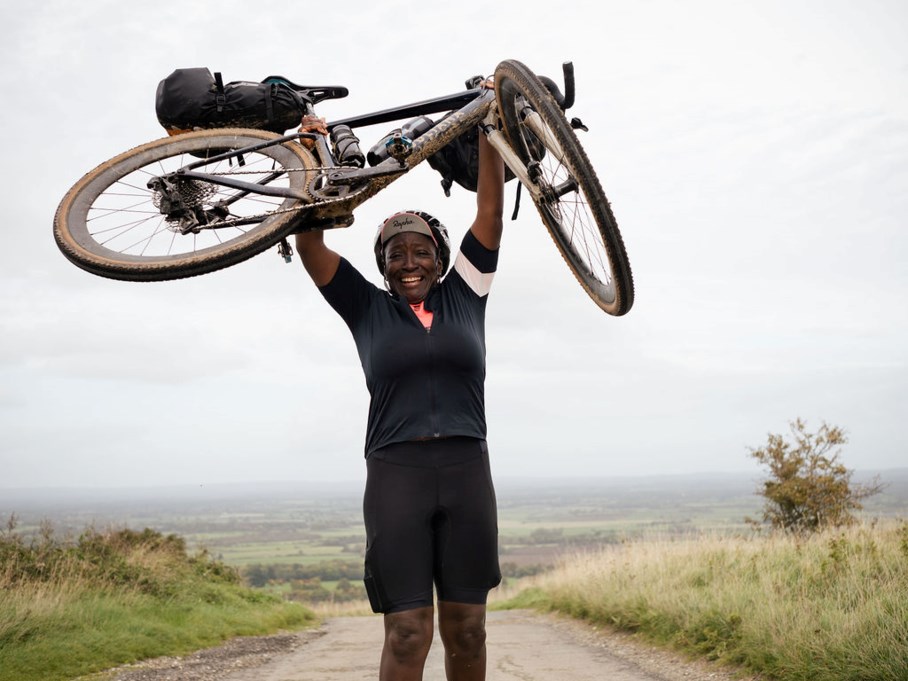
Like many outdoor ventures, bikepacking comes with its own set of barriers that only starts with access to expensive gear. At Sisters In The Wild, we feel like we have a responsibility to create event spaces that are welcoming for a more diverse set of riders. “Diversity” can mean many things, and whilst gender and race may be most visible, there are a bunch of less visible factors that stop people getting involved. For example, career responsibilities, sexual oreintation, socio-economic background, disability, access to transportation, lack of confidence. It’s in all of our interests to make our community a space where people feel safe to come along and share their diverse life experiences.
We’re committed to trying new ways to give more people a chance to fall in love with bikepacking. It’s not enough to simply offer subsidised or ring-fenced tickets to under-represented groups. That can be a great step, but needs to be part of a bigger pathway for people to feel ready to take the leap. With support from SRAM, we were able to collaborate with inspirational women like Aneela and Vee to pilot weekends that gave a first stepping stone into the world of gravel riding and bikepacking. Our hope is that we see some of these folks back at one of our bigger events, or even better: We see them taking on bikepacking adventures of their own next year.
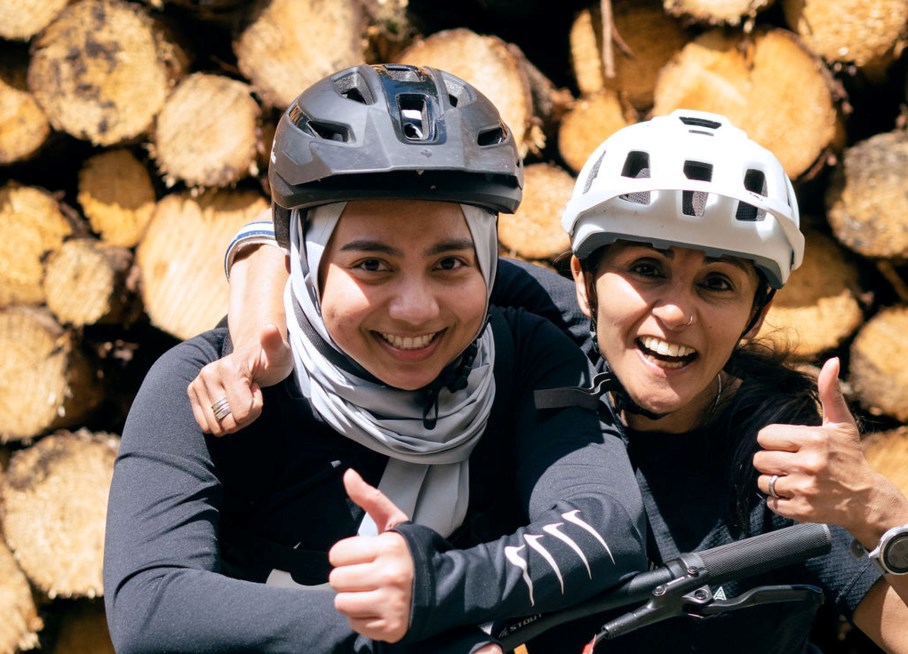
Aneela McKenna, co-host of Muslim Women Intro to Mountain Biking
We were based in one of the most beautiful spots in the Lake District in Coniston where we had to drive up a dirt track to get to it. It felt like it was in the middle of nowhere, and I remember getting there and thinking how that must have felt for some of the women who had never even experienced a weekend away from home. It felt quite far from home.
For all the women who came along, this was an introduction to mountain biking. You could tell everyone was a little nervous to start but eager to be on bikes. We decided we’d do an introductory skills session before taking them on a ride around Grizedale Forest to give them confidence as they hit the trails.
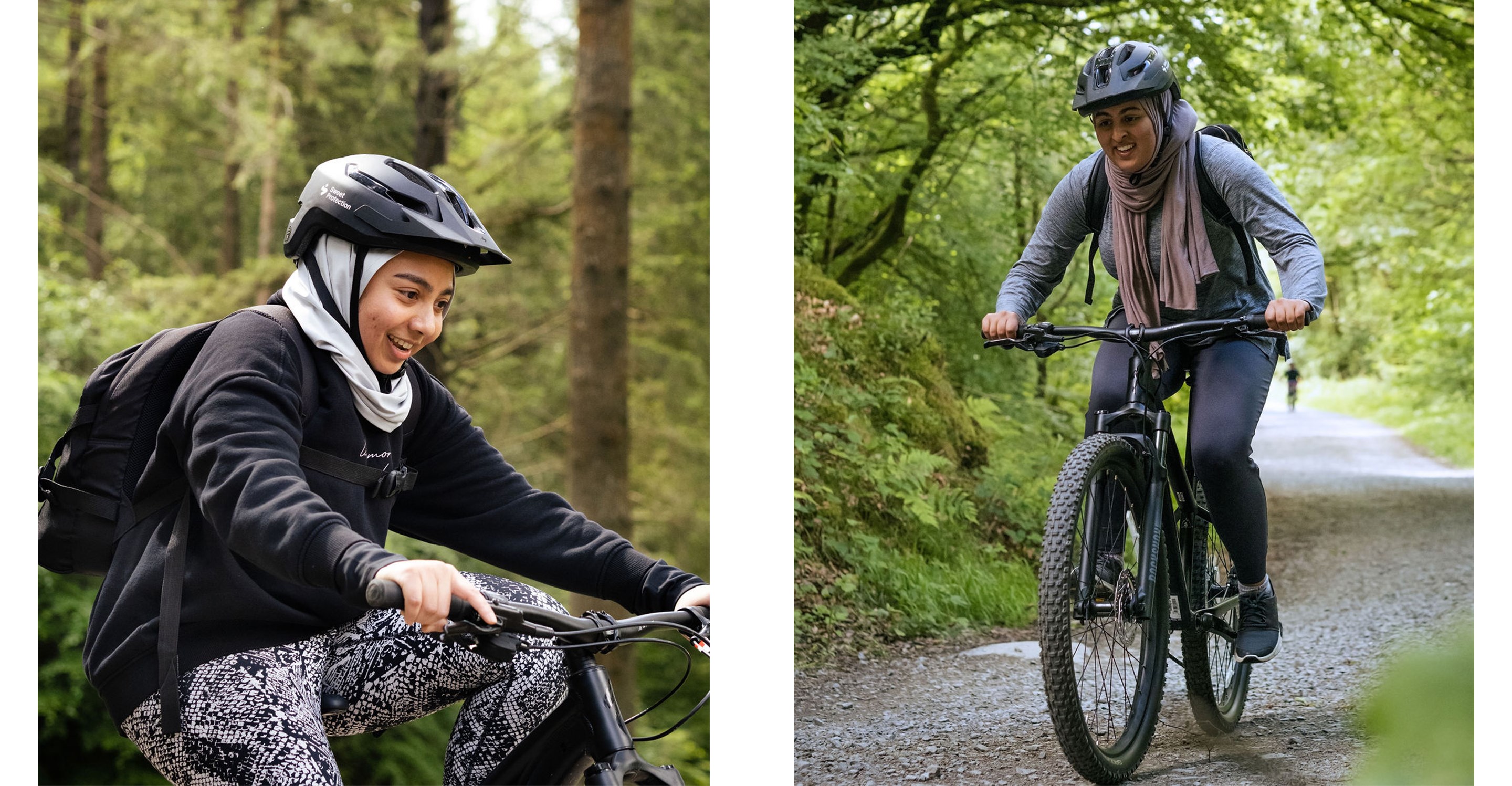
The tour took them on to Grizedale Forest paths, which were perfect for a newbie. With their newfound skills, they laughed and whooped on the trails and felt extremely proud of their efforts.
What was lovely and unique about this tour was how faith played an important part in it, and seeing the women connect spiritually to their surroundings while also getting the buzz from experiencing mountain biking for the first time.
They came away from the trip with a much closer bond and a strong connection through the love of bikes and their faith. They loved every minute of it and were sad to see the weekend end. They were inspired to ride more now that they had found a whole new set of friends to go ride bikes with.
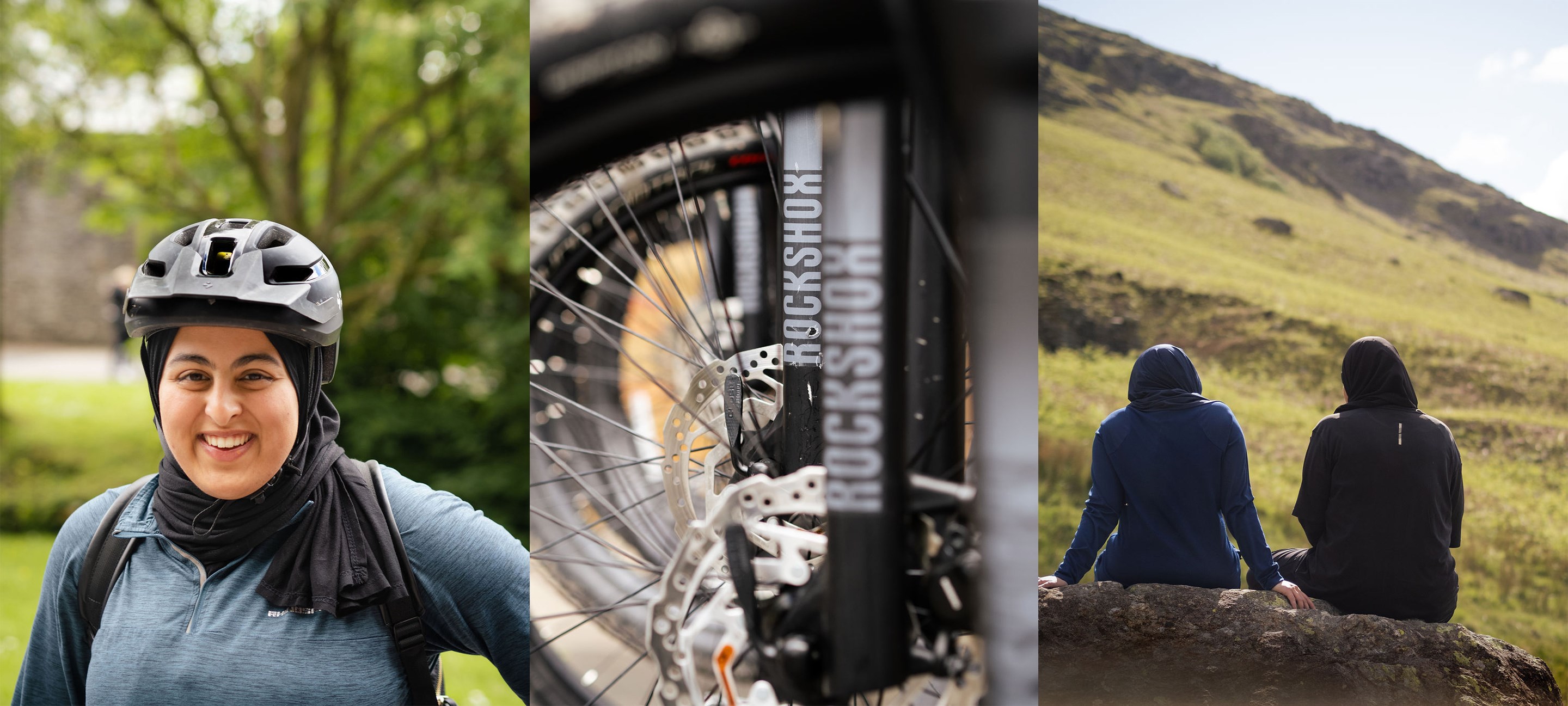
Vee Lowe, co-host of intro to bikepacking for people of colour
If we are serious about improving diversity in cycling, it is essential that initiatives like these happen. If you only see people that do not look like you, it can make you feel like you stand out; like being the only kid who forgot non-uniform day and showed up in uniform.
Just the anticipation of being the odd one out is off-putting enough to avoid an activity altogether. Having a specific event for a marginalised group immediately sends the message of you're welcome into this space, you’re not alone, and you’re not the odd one out. It will inevitably encourage people to participate.
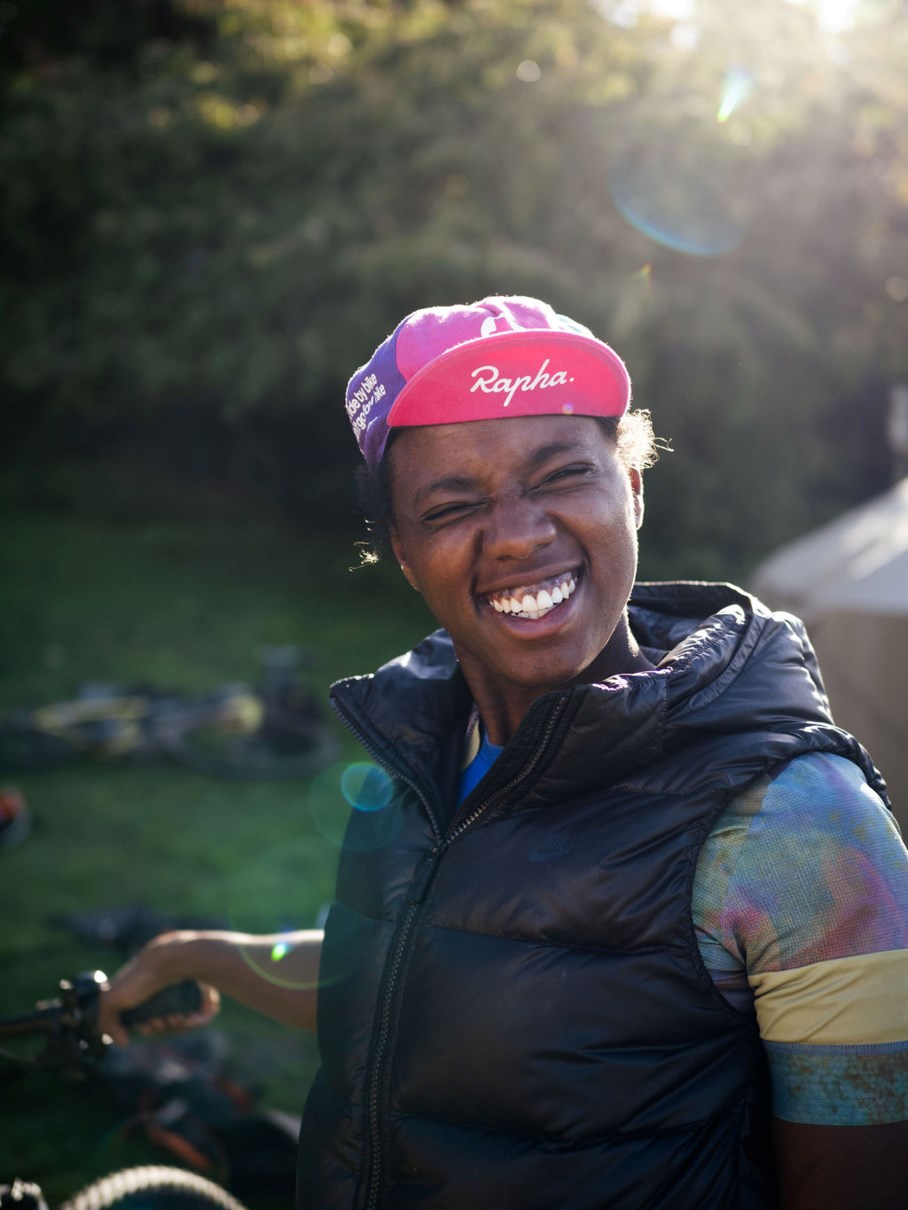
I’m not sure whether participants would have signed up to an event like this without the active encouragement for this intersectional group. Everyone seemed so keen and willing to try bikepacking, helpful to one another, positive, determined and inquisitive.
It was so wholesome and was great to see the very rapid progress people made with bike handling, confidence on trails, and sorting out all their gear. All of those adventure-seeking participants may not have had the initial supported experience of bikepacking, and may not have realised that this door was open to them and that it was something they enjoy. Now they have a community, and experience and I can’t wait to see what they do next.
Seeing is believing, and if you can see it, you can be it.
–Vee Lowe

This is why we need these spaces. Seeing is believing, and if you can see it, you can be it. I remember feeling hugely encouraged to get into more cycling when I saw a woman of colour dressed in lycra zoom by me on my commute. So giving a space where people from marginalised groups are able to gather together with people that look like them and share the joy of cycling together will mean they may find networks and friends to go riding with in future without feeling like the odd one out.
Those cyclists will then be more visible for other cyclists that may be encouraged seeing the diversity, and then those cyclists will possibly encourage others. It is a domino effect. By actively encouraging diversity now, it will in time become the norm for the sport to be diverse as the ripple effect is self-propelling.
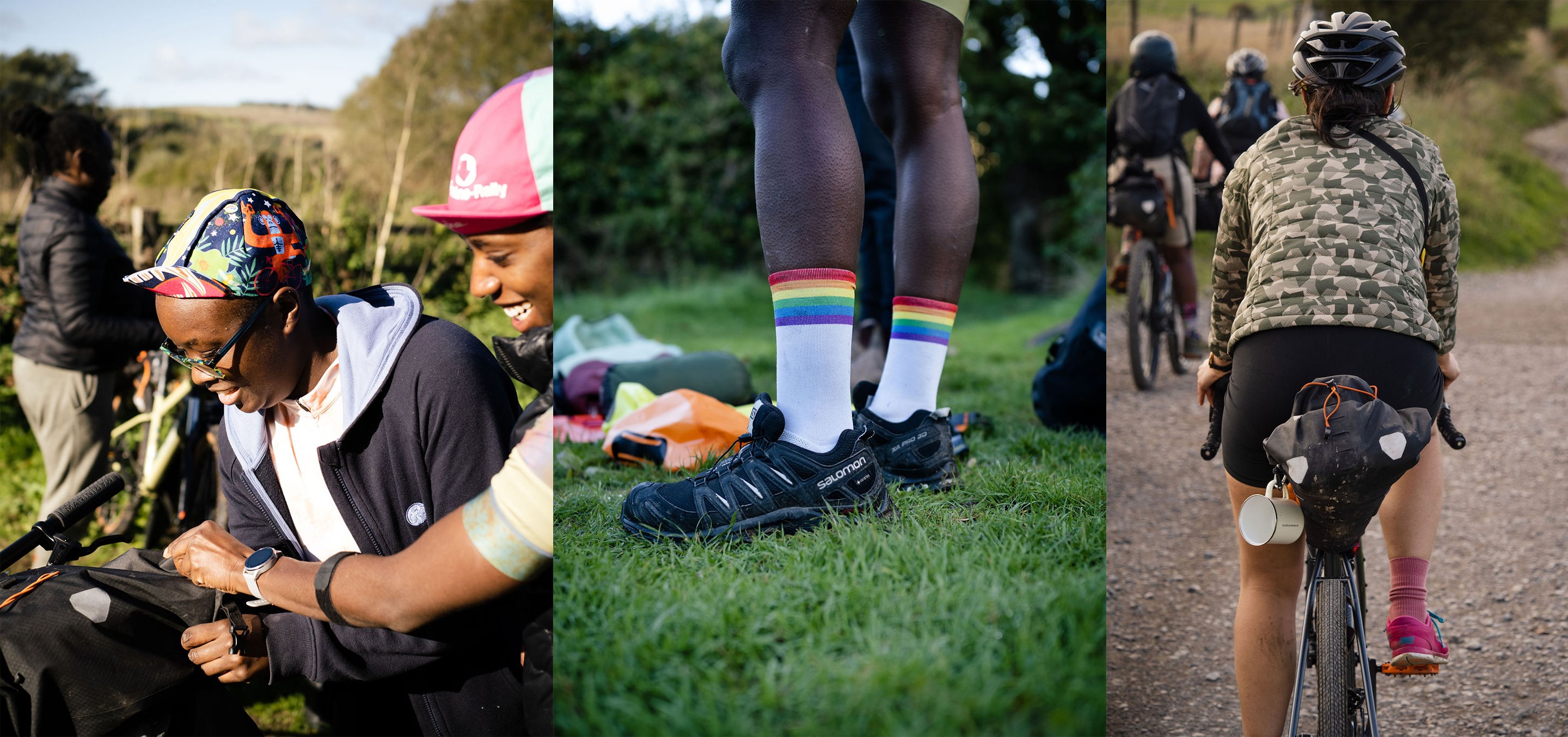
Photos by Sarah Hewitt. In honor of Rachael Walker's essay for International Women's Day, SRAM supported her work with Sisters in the Wild UK with $5000 to help make events like these happen.